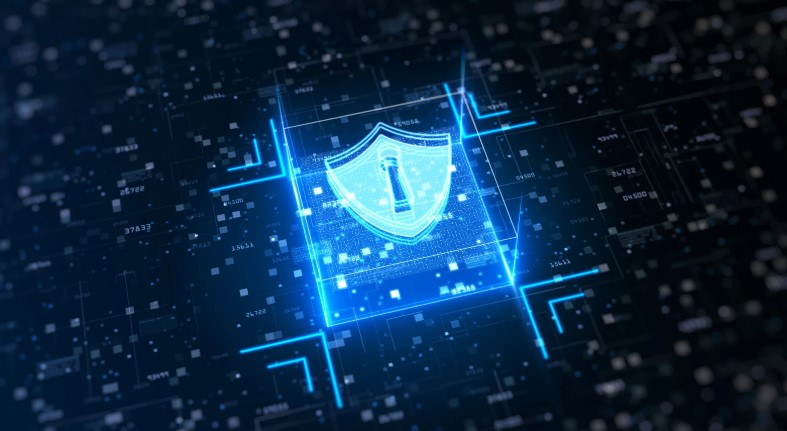
Top Tips to Improve Your Online Privacy and Security
The internet is a vast, interconnected world where our data often becomes currency. Protecting your online privacy and security is essential to ensure your personal information stays safe and out of the wrong hands. Here are some actionable tips to safeguard your digital life.
Monitor Your Digital Footprint
Your digital footprint consists of all the traces you leave behind while using the internet, from social media posts to online purchases and search history. Regularly monitoring your digital footprint is crucial for identifying potential risks and understanding what personal information is publicly accessible.
How to Monitor Your Digital Footprint?
- Search Yourself Online: Perform a Google search of your name to see what information about you is available.
- Check Your Social Media Privacy Settings: Ensure that only trusted contacts can view sensitive details about you.
- Use Privacy Tools: Services like DeleteMe or PrivacyBee can help remove personal information from people-search websites.
Keeping track of your digital presence not only enhances your privacy but also helps prevent identity theft and misuse of your data.
9 Tips to Improve Online Privacy and Security
1. Clear Google Search History Regularly

Every search you perform is logged by Google to improve its services, but this data can also expose your habits if your account is ever compromised. Clearing your Google search history regularly helps maintain your privacy by erasing sensitive information.
If you’re unsure how to do it, check out this step-by-step guide to clearing browser history. Make it a habit to revisit this setting to ensure your personal data is safe.
2. Use a Secure and Private Browser
Not all browsers prioritize your privacy. Switching to privacy-focused browsers like Brave or Firefox can limit tracking and data collection. These browsers often include built-in tools to block ads and trackers, making it harder for companies to profile you.
3. Enable Two-Factor Authentication (2FA)
Add an extra layer of security by enabling two-factor authentication on your online accounts. This ensures that even if your password is compromised, a second verification step (like a code sent to your phone) protects your account.
4. Review Your Privacy Settings on Social Media

Social media platforms often have default settings that favor data sharing. Regularly review and update your privacy settings to limit who can see your posts, photos, and personal details.
5. Clear Google Search History on All Devices
It’s important to remember that clearing your search history on one device doesn’t automatically clear it on others. Make sure to clear your Google search history across all devices you use to ensure comprehensive privacy protection.
6. Avoid Public Wi-Fi for Sensitive Activities
Public Wi-Fi networks are often unsecured, making them a hot spot for hackers to intercept your data. Avoid accessing sensitive accounts or conducting transactions on these networks. If you must use public Wi-Fi, ensure you connect through a Virtual Private Network (VPN) for added encryption.
7. Update Your Software and Devices

Outdated software is a common vulnerability that hackers exploit. Keep your operating system, apps, and antivirus programs up-to-date with the latest patches and updates to minimize risks.
8. Limit Permissions for Apps and Services
Many apps request permissions they don’t truly need. Regularly review the permissions granted to apps on your devices and revoke access to anything unnecessary, especially for location, camera, and microphone.
9. Use Strong Passwords and a Password Manager
Weak passwords are one of the easiest ways for hackers to access your accounts. Use a combination of upper- and lowercase letters, numbers, and symbols. Better yet, rely on a password manager to create and store secure passwords for all your accounts.
Conclusion
By following these tips, you can significantly improve your online privacy and security. Simple actions like knowing how to clear Google search history can go a long way in protecting your personal information and maintaining control over your digital presence. Start implementing these steps today and enjoy a safer online experience!
Author Profile

- Blogger by Passion | Contributor to many Business and Marketing Blogs in the United Kingdom | Fascinated with SEO and digital marketing and latest tech innovations |
Latest entries
 Digital MarketingApril 11, 2025Digital Marketing Tactics That Generated £1M in Revenue for UK Retailers
Digital MarketingApril 11, 2025Digital Marketing Tactics That Generated £1M in Revenue for UK Retailers Web DesignApril 11, 2025UK Digital Trends: Top Website Building Solutions for 2025
Web DesignApril 11, 2025UK Digital Trends: Top Website Building Solutions for 2025 TechnologyMarch 31, 2025The Future of Text-to-Speech: Transforming Communication in Healthcare
TechnologyMarch 31, 2025The Future of Text-to-Speech: Transforming Communication in Healthcare TechnologyMarch 28, 2025Top-Rated Tools Every Modern Recruiter Needs in Their Toolkit
TechnologyMarch 28, 2025Top-Rated Tools Every Modern Recruiter Needs in Their Toolkit

